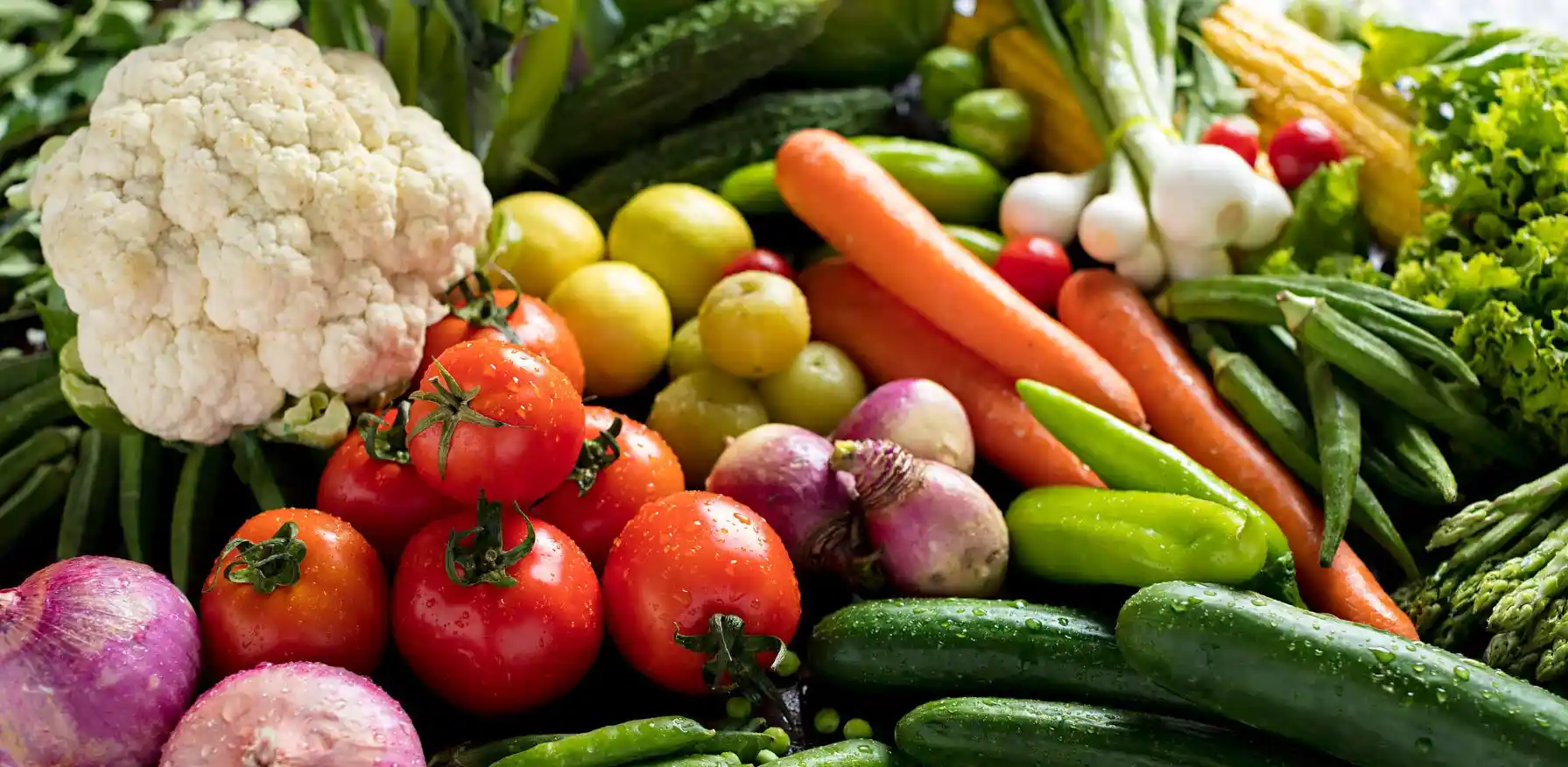
Introduction
Staying mentally sharp can be challenging with today’s busy routine, but what we eat can make a big difference. Certain vegetables are packed with antioxidants, which help protect our brains from damage and support clear thinking.
Antioxidants-rich veggies protect brain cells from free radicals, reduce inflammation and support focus, memory, and mood. Eating these foods may even slowdown brain aging. Discover the top vegetables to keep your mind sharp.
Antioxidants vegetables for mental clarity
1. Leafy Greens
Examples: Spinach, Mustard greens, Fenugreek leaves, collard greens.
Leafy greens are rich in essential vitamins like A, C, E, and K, which are important for brain health. They also contain antioxidants that protect the brain from damage and help improve memory, focus, and learning. These vegetables are also high in fiber, which supports good digestion and helps maintain a healthy weight, further contributing to overall mental health. Research indicates that higher intake of leafy greens is associated with a reduced risk of cognitive decline and improved brain health over time.
2. Cruciferous Vegetables
Examples: Broccoli, Brussels sprouts, cauliflower, cabbage.
Cruciferous vegetables, such as broccoli, cauliflower, and cabbage, contain beneficial compounds that reduce inflammation and support brain health. They are called "cruciferous" because their flowers have four petals shaped like a cross.
These vegetables are rich in nutrients that help lower the risk of diseases like Alzheimer’s (which causes memory loss and confusion) and Parkinson’s (which leads to movement problems like stiffness). They are also high in fibre, which aids digestion and supports overall brain function.
3. Bell Peppers
Bell peppers, especially red and yellow ones, are packed with vitamin C and antioxidants. Vitamin C is important for making brain chemicals that help with mood and clear thinking. The antioxidants in bell peppers protect the brain from damage caused by harmful molecules, which can improve memory, learning, and overall brain health.
They also help reduce inflammation, support eye health, and boost the immune system, making them a great addition to your diet for better mental and physical well-being.
4. Beets
Beetroots are full of natural compounds that act as strong antioxidants, helping to reduce inflammation and protect the brain. They also have nitrates, which improve blood flow by relaxing blood vessels, allowing more oxygen and nutrients to reach the brain.
This helps improve mental clarity, focus, and brain function. Studies show that eating beets regularly can boost attention, memory, and overall brain performance, making them a great choice for supporting brain health.
5. Carrots
Carrots are packed with vitamin A, which is important for brain health, helping with memory and learning. They also contain other nutrients like vitamin K and fiber, which help reduce inflammation and improve blood flow, both of which are great for your brain.
Eating carrots regularly can help you think more clearly, stay focused, and improve brain health over time. Plus, they’re a simple and tasty way to keep your brain strong.


Fun Ways to Add More Veggies to Your Diet
1. Salads
Vibrant salads are not only attractive to the eye but also rich in nutrients.
How to Prepare: Start with fresh greens like spinach or lettuce. Add chopped vegetables such as bell peppers, tomatoes, grated carrots, and cucumber for crunch. You can also include roasted beets or avocado for extra flavour and healthy fats.
Tips: For a healthy dressing, mix yogurt with lemon juice, a pinch of salt, and your choice of spices like cumin or black pepper. You can also add a handful of roasted peanuts or sesame seeds for extra crunch and nutrition.
2. Stir-fries
Stir-fries are a quick and tasty way to enjoy a variety of vegetables.
How to Prepare: Start with a mix of cruciferous vegetables like broccoli and cauliflower. Add sliced mushrooms for an earthy flavor. Heat oil in a pan, then sauté chopped garlic and ginger until fragrant. Toss in the vegetables and cook until they are tender but still crisp.
Tips: Add soy sauce, sesame oil, or spices like turmeric or cumin for extra flavor. Serve the dish on top of brown rice or quinoa for a complete meal.
3. Soups and Stews
Soups and stews are comforting and nutritious meals that can be easily packed with vegetables.
How to Prepare: Start by preparing water as your soup base. Then, add chopped vegetables like carrots, sweet potatoes, red cabbage, and beets. Let everything simmer until the vegetables are soft and the flavors mix well.
Tips: To boost the taste, add herbs like curry leaves, ginger, or carom seeds(ajwain). A little squeeze of lemon juice just before serving will make the flavors more enhanced.
4. Wraps and Sandwiches
Vegetables can also be included in wraps and sandwiches for a convenient meal option.
How to Prepare: For a quick and healthy wrap or sandwich, use whole wheat bread or roti. Add a spread like hummus or paneer, and fill with veggies like spinach, cucumber, bell peppers, and carrots.
Tips: You can also add a bit of yogurt or a squeeze of lemon to enhance the flavor. This makes a quick, easy, and nutritious lunch with full of fresh veggies and good energy.
Conclusion
Eating vegetables full of antioxidants is an easy way to boost your brain health, improve focus, and support overall well-being. Veggies like leafy greens, cruciferous vegetables, bell peppers, beets, and carrots are packed with nutrients that help improve memory and learning. You can add them to your meals in salads, stir-fries, soups, or wraps. By regularly eating these veggies, you’re giving your brain the nutrients it needs to stay healthy and strong in the long term.
More Updates


